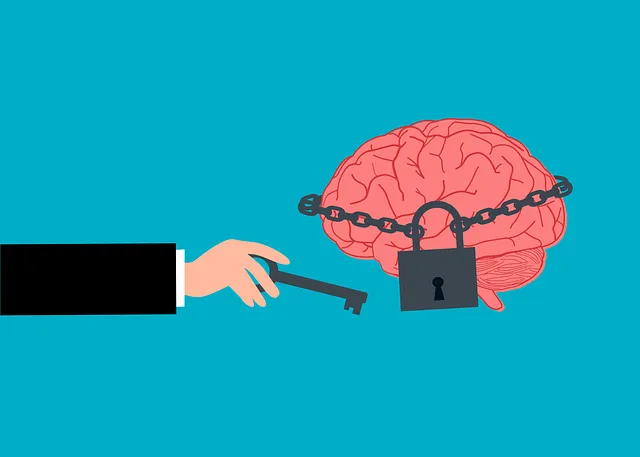The Kaiser Permanente behavioral health center in Highlands Ranch prioritizes risk management as a cornerstone of high-quality mental healthcare. They conduct comprehensive risk assessments, empower patients through wellness coaching and awareness campaigns, and provide staff with specialized training on de-escalation, crisis intervention, and trauma-informed care. This holistic approach ensures patient safety, staff well-being, and positive outcomes within the unique challenges of a diverse client population at the Kaiser Permanente behavioral health center Highlands Ranch.
Mental health professionals face unique challenges in risk management due to the sensitive nature of their work. This article explores effective strategies tailored specifically to the mental health setting, drawing insights from the practices at Kaiser Permanente Behavioral Health Center Highlands Ranch. We’ll delve into identifying risks, developing robust management plans, and implementing training for continuous improvement, ensuring patient safety remains paramount. Discover how these strategies contribute to a comprehensive risk mitigation approach unique to Kaiser Permanente’s behavioral health services.
- Understanding Risk Management in Mental Health Care at Kaiser Permanente Behavioral Health Center Highlands Ranch
- Identifying Potential Risks and Hazards Specific to the Mental Health Setting
- Developing a Comprehensive Risk Management Plan for Optimal Patient Safety
- Implementation, Training, and Continuous Improvement Strategies for Effective Risk Mitigation
Understanding Risk Management in Mental Health Care at Kaiser Permanente Behavioral Health Center Highlands Ranch

At Kaiser Permanente Behavioral Health Center Highlands Ranch, risk management is a cornerstone of delivering exceptional mental health care. The center understands that addressing patient safety and mitigating risks are essential aspects of fostering a supportive environment for recovery. By implementing comprehensive risk management strategies, they aim to enhance the overall quality of services provided, ensuring every individual receives personalized care tailored to their unique needs.
Risk assessment is a key component of this process, involving careful evaluation of various factors that may impact patient outcomes. This includes identifying potential hazards within the healthcare setting, understanding patient vulnerabilities, and proactively addressing them through evidence-based practices. Kaiser Permanente Behavioral Health Center Highlands Ranch has developed specialized programs, such as mental wellness coaching initiatives and public awareness campaigns, to actively engage patients in their care and empower them to manage risks effectively. These innovative approaches not only contribute to improved treatment outcomes but also foster a sense of empowerment and resilience among individuals seeking mental health support.
Identifying Potential Risks and Hazards Specific to the Mental Health Setting

Mental health professionals face unique challenges that require a tailored approach to risk management planning. When setting up a risk assessment for a Kaiser Permanente behavioral health center like Highlands Ranch, it’s crucial to identify and mitigate potential hazards specific to this specialized environment. One key area is recognizing the impact of high-stress situations on both staff and clients. The demanding nature of mental health work can lead to burnout and increased anxiety, requiring comprehensive strategies to promote employee well-being.
Additionally, ensuring patient safety during crisis interventions is paramount. This includes considerations for managing unpredictable behaviors, especially in a diverse client population with varying mental health conditions. Regular training on de-escalation techniques, crisis intervention, and trauma-informed care can help staff navigate these challenges effectively. Incorporating practices such as Mental Wellness Journaling Exercise Guidance and Stress Management Workshops Organization within the facility’s culture fosters a proactive approach to risk management, ultimately enhancing patient outcomes and support for mental health professionals.
Developing a Comprehensive Risk Management Plan for Optimal Patient Safety

At a Kaiser Permanente behavioral health center Highlands Ranch, developing a comprehensive risk management plan is paramount to ensuring patient safety and optimal mental wellness. This strategic document should encompass an in-depth risk assessment that identifies potential hazards within various facets of care delivery, including clinical practices, staff interactions, and environmental factors. By thoroughly evaluating these areas, mental health professionals can proactively mitigate risks, enhancing the overall security of their patients.
A robust plan includes regular self-awareness exercises for staff, focusing on recognizing personal biases, stress triggers, and emotional vulnerabilities. This promotes a culture of mindfulness, where professionals are attuned to not only their patients’ needs but also their own mental state. Incorporating these self-Awareness Exercises ensures that the team remains resilient and better equipped to handle challenging situations, ultimately contributing to a safer and more nurturing environment for all clients.
Implementation, Training, and Continuous Improvement Strategies for Effective Risk Mitigation

At the Kaiser Permanente behavioral health center Highlands Ranch, implementation of robust risk management planning is integral to ensuring a safe and supportive environment for both patients and professionals. Effective strategies include integrating Risk Management Planning for Mental Health Professionals into everyday operations, with regular training sessions for staff to enhance their understanding of potential risks and appropriate mitigation techniques. These training programs should cover essential topics such as Communication Strategies and Conflict Resolution Techniques, empowering practitioners to address issues promptly and professionally.
Continuous improvement is a key component of successful risk mitigation. The center encourages open dialogue among staff, fostering a culture where concerns can be raised without fear of repercussions. Regular reviews of existing protocols and policies allow for adaptation to evolving challenges, ensuring that best practices are consistently applied. This proactive approach, combined with ongoing training, enables the Kaiser Permanente behavioral health center Highlands Ranch to maintain a high standard of care and foster a positive work environment.
Mental health professionals at the Kaiser Permanente Behavioral Health Center Highlands Ranch must prioritize risk management planning to ensure patient safety and deliver high-quality care. By identifying specific risks, developing a comprehensive plan, and implementing effective training strategies, healthcare providers can mitigate potential hazards and create a secure environment for their patients. Adopting these practices not only aligns with industry standards but also reflects the commitment of Kaiser Permanente Behavioral Health Center Highlands Ranch to optimal patient outcomes.






